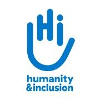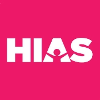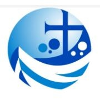Israel Job Openings

United Nations
MONITORING AND REPORTING OFFICER
Jerusalem
September 27, 2024
Org. Setting and Reporting
The Department of Safety and Security (UNDSS) is responsible for providing leadership, operational support and oversight of the United Nations security management system (UNSMS) globally. As a global leader in security risk management principles, UNDSS enables the safe and effective delivery of United Nations programmes and activities in the most complex and challenging environments, while maximizing precious resources. To this end, the work of the Department is aligned under a clear mission, to enable United Nations system programme activities through trusted security leadership and solutions. This is a unique opportunity to join a diverse, dynamic and exciting organization gaining unique and valuable experience where security provides great value. Besides the opportunity to gain new skills and further advance security expertise, this position offers a fulfilling environment that gives you satisfaction by contributing directly or indirectly to peace and security, human rights, and achievement of the Sustainable Development Goals. Simply, all humanity will be benefiting from your work. Together, we can make the world a better place. For more information on the Department, and how we make an impact on the world in enabling the achievement of SDGs, visit: https://www.un.org/undss/ The 24/7 UNDSS Global Security Information Centre (GSIS) serves as a central global hub for providing timely reports to the focal points of the UN Security Management System and the Department’s senior management. The current crisis in Israel and the Occupied Palestinian Territory has significant regional implications and requires access to real-time information and contextual understanding of the local and regional dynamics to provide situational awareness across neighbouring countries as well as to UN senior management to assist in strategic decision-making. This position is based in East Jerusalem, under the UNDSS Israel and the Occupied Palestinian Territory (IOPT) Office. Under the overall guidance and supervision of the Chief GSIC in New York and in close collaboration with UNDSS IOPT Security Information and Operations Center (SIOC), the Monitoring and Reporting Officer will provide consolidated reports and a common situational overview, including developments of a regional nature.
Responsibilities
Under the supervision of the Chief GSIS, the incumbent will be part of the team mandated to provide UNDSS leadership with a 24/7 common situational awareness overview to support coordination and operational planning and facilitate crisis management. S/he will be responsible for the following duties: Monitoring and reporting: • Ensure that GSIC staff members receive guidance and directives for the collection of information and help maintain relations with stakeholders. • Gather and assimilate information from across UNDSS field offices and external sources, including conventional and social media. • Monitor major developments (security, military, political, humanitarian, human rights, etc.), following the actions of relevant actors, including intergovernmental organizations, governments, non-governmental organizations, civil society, political institutions and armed actors (regular armies and rebel groups, militias, etc.); and generally maintain high situational awareness. • Prepare and help review and ensure the processing and timely dissemination of integrated reports (including daily and weekly situation reports, special reports, briefings, background notes, presentations, etc.) about significant developments for dissemination to GSIC. • Prepare and help review and send incident ("flash") reports about important, urgent events and new developments affecting the UN mandate implementation and peace and stability in the region. • Supervise and review the drafting and reporting products of other colleagues and fulfil the role of the Chief of the GSIC in his/her absence. • Monitor, report and track early warning / rapid response information and alerts. • Manage databases and extract data and information from databases and SSIRS for use in various reports and visualizations; and be ready to respond to information queries about security and operations in a timely manner, as requested. • Manage the exchange of operational information with internal and external partners, including UNSMS, AFPs, UNCT, members of the diplomatic community, humanitarian and civil society partners. • When required, perform Duty Officer duties to enable continuous monitoring and reporting coverage, including out-of-hours work during evenings, weekends, and holidays. Crisis management support: • Help ensure crisis preparedness including through tabletop exercises, regular briefings/trainings on crisis management procedures, SOPs and other guidance. • Under the supervision of Chief GSIC and Principal Security Adviser, support crisis management activities.. • Help ensure the GSIC supports crisis management meetings (secretariat support, presentations, talking points if required, liaison with technicians and facilities management). • Liaise regularly with other UN entities to provide timely information during a crisis for decision-makers. Coordination and operational planning: • Support the organisation of operational coordination meetings, as required, liaising with UNDSS UNHQ, UNCT and other UN coordination bodies and monitor the implementation of decisions. • Support security planning, contingency planning and exercises, where applicable. • Help coordinate critical operations and high-level visits. • Collaborate with UNOCC at the HQ-level, SIOC in-country and other UNDSS information and operations centres across the region. • Support SIOC in updating SSIRS and security databases. Communications hub: • Support the facilitation of contact between SIOC and GSIC. • Ensure an up-to-date database of contact details for key personnel is maintained in the GSIC. Assist the Chief GSIC with management, including: • Supervision of the GSIC, recruitment, training and management of staff; establishment of duty rosters, as necessary; and oversight of budget submissions, as required; relations across the Department and with the UNDSS field offices. • Development of standard operating procedures, tools and templates (for reporting, crisis management, communications, etc., reflecting UNDSS policy and guidance) and help to ensure their implementation (including through training and evaluation). • Preparation and briefing for UNDSS senior leadership • Act as Oi C Chief GSIC • Perform other tasks as required by the Chief GSIC.
Competencies
Professionalism: Effective analytical skills; Excellent drafting and editing skills, with the proven ability to produce cogent reports often under strict time constraints; Ability to identify politically sensitive and operationally significant issues. Ability to coordinate with various actors. Ability to effectively conduct presentations by clearly summarizing and articulating operational issues, proposing options and concisely conveying information; Demonstrates effective interpersonal skills and emotional intelligence, including self-awareness and contextual intelligence. Shows openness to learning and commitment to self-development. Identifies issues, researches, collects data, demonstrates situational awareness, conceptual analytical and evaluative skills and participates in the resolution of issues/problems demonstrating critical thinking, perceptiveness, judgement and decision-making. Demonstrates an ability to implement policies. Ability to make quick decisions in emergencies or when rapid response is needed. Communicates complex concepts effectively both verbally and in writing. Shows pride in work and in achievements. Demonstrates professional competence and mastery of subject matter. Is conscientious and efficient in meeting commitments, observing deadlines and achieving results. Shows ability to prioritize, manage, and implement multiple high-level projects in a timely manner, even in fast-changing contexts. Is motivated by professional rather than personal concerns. Takes ownership of accountability and supports strategies to ensure compliance with all security risk management decisions and regulations. Shows persistence when faced with difficult problems or challenges; remains calm in stressful situations. Demonstrates respect and sensitivity towards diversity in all its forms, in all cultural, gender and religious settings. Takes responsibility for incorporating different perspectives and ensuring the equal participation of women and men in all areas of work. Contributes to an environment in which others can talk and act without fear of repercussion; places confidence in and builds trust with colleagues and stakeholders. Communication: Speaks and writes clearly and effectively. Listens to others, correctly interprets messages from others and responds appropriately. Asks questions to clarify, and exhibits interest in having two-way communication. Tailors language, tone, style and format to match the audience. Demonstrates openness in sharing information and keeping people informed. Client Orientation: Considers all those to whom services are provided to be “clients” and seeks to see things from clients’ point of view. Establishes and maintains productive partnerships with clients by gaining their trust and respect. Identifies clients’ needs and matches them to appropriate solutions. Monitors ongoing developments inside and outside the clients’ environment to keep informed and anticipate problems. Keeps clients informed of progress or setbacks in projects. Meets timeline for delivery of products or services to client. Managing performance: Delegates the appropriate responsibility, accountability and decision-making authority. Makes sure that roles, responsibilities and reporting lines are clear to each staff member. Accurately judges the amount of time and resources needed to accomplish a task and matches task to skills. Monitors progress against milestones and deadlines. Regularly discusses performance and provides feedback and coaching to staff. Encourages risk-taking and supports creativity and initiative. Actively supports the development and career aspirations of staff. Appraises performance fairly.
Education
Advanced university degree (Master's degree or equivalent degree) in political science, social sciences, international relations, law, or related field. A first level university degree in combination with two additional years of qualifying experience may be accepted in lieu of the advanced university degree.
Job - Specific Qualification
Not available.
Work Experience
A minimum of seven (7) years of progressively responsible experience in political or international affairs, military, police, security, civil affairs, humanitarian affairs, human rights, crisis operations and management, or related field is required. A minimum of one year of operational planning experience, during the last five years, is required. Experience in drafting political documents and briefings for senior officials often under strict time constraints is required. Experience providing support for the implementation of operational coordination decisions and mechanisms is required. Experience in political, security and regional analysis is required. Experience gathering and analysing information and data using innovative and enterprise tools, such as the UN SAGE system or similar system, and Power BI dashboards, is required. At least two years of international experience in a conflict or post-conflict environment in the last five years is desirable. Experience requiring crisis management expertise, particularly as applied in a 24/7 Operations Room context in an integrated civilian-military-police environment, is desirable.
Languages
English and French are the working languages of the United Nations Secretariat. For this position, fluency in English (both oral and written) is required. Note: Fluency equals a rating of "fluent" in all four areas (speak, read, write and understand).
Assessment
Evaluation of qualified candidates may include an assessment exercise which may be followed by competency-based interview.
Special Notice
• This job opening is advertised to fill an extra-budgetary funded temporary position. It is available for a period of 364 days. If the selected candidate is a staff member from the United Nations Secretariat, the selection will be administered as a temporary assignment. The appointment or assignment and renewal thereof is subject to the availability of the project funds, budgetary approval and/or extension of the mandate. Accordingly, the appointment will be temporary for the duration of the grant. • While this temporary job opening may provide the successful applicant with an opportunity to gain new work experience, the selection for this position is for a limited period and has no bearing on the future incumbency of the post. • Due to the temporary nature of the position, the eligibility for this temporary job opening may be limited to candidates based at the duty station. • This temporary job opening may be limited to "internal candidates," who have been recruited through a competitive examination administered according to staff rule 4.16 or staff selection process including the review of a central review body established according to staff rule 4.15. • The United Nations Secretariat is committed to achieving 50/50 gender balance in its staff. Female candidates are strongly encouraged to apply. The United Nations Department of Safety and Security (UNDSS) is taking efforts to improve gender parity, including full implementation of the UN-wide, and Departmental Gender Strategies. We are committed to providing an inclusive culture and exciting opportunities for women in the security and operations field. • A current staff member who holds a fixed-term, permanent or continuing appointment may apply for temporary positions no more than one level above his or her current grade. However, a current staff member who holds an appointment at the G-6 or G-7 level may also apply to temporary positions in the Professional category up to and including the P-3 level, subject to meeting all eligibility and other requirements for the position. • An impeccable record for integrity and professional ethical standards is essential. • A staff member holding a temporary appointment shall be regarded as an external candidate when applying for other positions and may apply for other temporary positions at any level, subject to section 5.7 below and staff rule 4.16 (b) (ii). Therefore, a staff member holding a temporary appointment in the General Service or related categories may only apply to positions within those categories. For full information on eligibility requirements, please refer to section 5 of ST/AI/2010/4Rev.1 on Temporary Appointments. • Staff members of the United Nations common system organizations who will reach the mandatory age of separation or retirement within the duration of the current temporary need period are not eligible to apply. Submitting an application or selection for the current temporary job opening does not delay or increase the mandatory age of separation. • Retirees above the mandatory age of separation who wish to be considered for the current temporary job opening must indicate the reason for their last separation as "retirement." Such retirees shall not be employed by the Organization, unless (a) the operational requirements of the Organization cannot be met by staff members who are qualified and available to perform the required functions; and (b) the proposed employment would not adversely affect the career development or redeployment opportunities of other staff members and represents both a cost-effective and operationally sound solution to meet the needs of the service. • Upon separation from service, including, but not limited to, expiration or termination of, or resignation from, a fixed-term, continuing or permanent appointment, a former staff member will be ineligible for re-employment on the basis of a temporary appointment for a period of 31 days following the separation. In the case of separation from service on retirement, a former staff member will be ineligible for re-employment for a period of three months following the separation. This equally applies, mutatis mutandis, with respect to a former or current staff member who has held or holds an appointment in another entity applying the United Nations Staff Regulations and Rules and who applies for a temporary position with the Secretariat. • An external candidate selected for this position is bound by the prevailing condition of the staff selection system under ST/AI/2010/3, as amended, and ST/AI/2010/4/Rev.1. A staff member holding a temporary appointment who is recruited in the Professional and above categories on a temporary appointment, and placed on a position authorized for one year or longer may not apply for or be reappointed to his/her current position within six months of the end of his/her current service. This provision does not apply to staff members holding temporary appointments and placed on positions authorized for one year or more in duty stations authorized for peacekeeping operations or special political missions. • Applying to this job opening carries an expectation to accept the offer, if selected. Staff members are subject to the authority of the Secretary-General and to assignment by him or her. In this context, all staff are expected to move periodically to new functions in their careers in accordance with established rules and procedures. • Pursuant to section 7.11 of ST/AI/2012/2/Rev.1, candidates recruited through the young professionals programme who have not served for a minimum of two years in the position of their initial assignment are not eligible to apply to this position. • The Staff Regulations, Staff Rules and administrative issuances governing staff appointments can be viewed at: http://www.un.org/hr_handbook
United Nations Considerations
According to article 101, paragraph 3, of the Charter of the United Nations, the paramount consideration in the employment of the staff is the necessity of securing the highest standards of efficiency, competence, and integrity. Candidates will not be considered for employment with the United Nations if they have committed violations of international human rights law, violations of international humanitarian law, sexual exploitation, sexual abuse, or sexual harassment, or if there are reasonable grounds to believe that they have been involved in the commission of any of these acts. The term “sexual exploitation” means any actual or attempted abuse of a position of vulnerability, differential power, or trust, for sexual purposes, including, but not limited to, profiting monetarily, socially or politically from the sexual exploitation of another. The term “sexual abuse” means the actual or threatened physical intrusion of a sexual nature, whether by force or under unequal or coercive conditions. The term “sexual harassment” means any unwelcome conduct of a sexual nature that might reasonably be expected or be perceived to cause offence or humiliation, when such conduct interferes with work, is made a condition of employment or creates an intimidating, hostile or offensive work environment, and when the gravity of the conduct warrants the termination of the perpetrator’s working relationship. Candidates who have committed crimes other than minor traffic offences may not be considered for employment. Due regard will be paid to the importance of recruiting the staff on as wide a geographical basis as possible. The United Nations places no restrictions on the eligibility of men and women to participate in any capacity and under conditions of equality in its principal and subsidiary organs. The United Nations Secretariat is a non-smoking environment. Reasonable accommodation may be provided to applicants with disabilities upon request, to support their participation in the recruitment process. By accepting a letter of appointment, staff members are subject to the authority of the Secretary-General, who may assign them to any of the activities or offices of the United Nations in accordance with staff regulation 1.2 (c). Further, staff members in the Professional and higher category up to and including the D-2 level and the Field Service category are normally required to move periodically to discharge functions in different duty stations under conditions established in ST/AI/2023/3 on Mobility, as may be amended or revised. This condition of service applies to all position specific job openings and does not apply to temporary positions. Applicants are urged to carefully follow all instructions available in the online recruitment platform, inspira, and to refer to the Applicant Guide by clicking on “Manuals” in the “Help” tile of the inspira account-holder homepage. The evaluation of applicants will be conducted on the basis of the information submitted in the application according to the evaluation criteria of the job opening and the applicable internal legislations of the United Nations including the Charter of the United Nations, resolutions of the General Assembly, the Staff Regulations and Rules, administrative issuances and guidelines. Applicants must provide complete and accurate information pertaining to their personal profile and qualifications according to the instructions provided in inspira to be considered for the current job opening. No amendment, addition, deletion, revision or modification shall be made to applications that have been submitted. Candidates under serious consideration for selection will be subject to reference checks to verify the information provided in the application. Job openings advertised on the Careers Portal will be removed at 11:59 p.m. (New York time) on the deadline date.
No Fee
THE UNITED NATIONS DOES NOT CHARGE A FEE AT ANY STAGE OF THE RECRUITMENT PROCESS (APPLICATION, INTERVIEW MEETING, PROCESSING, OR TRAINING). THE UNITED NATIONS DOES NOT CONCERN ITSELF WITH INFORMATION ON APPLICANTS’ BANK ACCOUNTS.
We regret to inform you that this job opportunity is no longer available as it has expired
New Job Alerts


Elementor
Senior Product Manager - Editor Team
Ramat Gan
FULL TIME
November 19, 2024
View Job Description
Cyclops Security
Senior Frontend Engineer
Tel Aviv-Yafo
FULL TIME
November 19, 2024
View Job Description

Looking for similar job?

Coralogix
Backend Engineer (Infrastructure Monitoring)
Ramat Gan
FULL TIME
October 4, 2024
View Job Description
Handicap International
Senior Advocacy Officer - Palestine
Jerusalem
FULL TIME
October 7, 2024
View Job Description
Handicap International
Senior Advocacy Officer - Palestine
Jerusalem
FULL TIME
October 7, 2024
View Job Description
Handicap International
Senior Advocacy Officer - Palestine
Jerusalem
FULL TIME
October 7, 2024
View Job Description

New Job Alerts


Elementor
Senior Product Manager - Editor Team
Ramat Gan
FULL TIME
November 19, 2024
View Job Description
Cyclops Security
Senior Frontend Engineer
Tel Aviv-Yafo
FULL TIME
November 19, 2024
View Job Description
